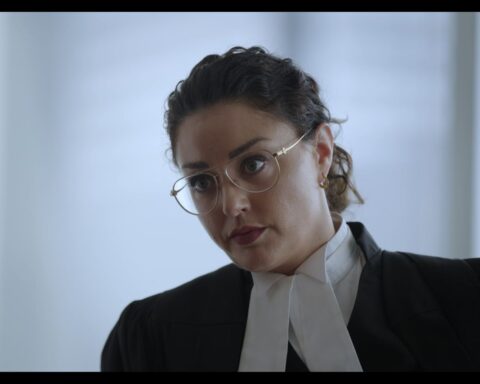Nothing Like a Dame
(UK, 82 min.)
Dir. Roger Michell
Enjoy a few pitchers of afternoon gins with acting royalty in Nothing Like a Dame. This easygoing documentary from Notting Hill and My Cousin Rachel director Roger Michell joins four of the finest actresses of any generation or kingdom for an afternoon of reflection, merriment, and gossip. Dames Judi Dench, Maggie Smith, Eileen Atkins, and Joan Plowright invite Michell and his nosy documentary crew to stand on the sidelines and observe their ritual of convening in the countryside for drinks and nostalgia. The doc sees the four actresses and longtime friends reflect upon the generations of change that inspired their work and the legacy of great drama they’ve delivered over the years. The four actors make for a natural ensemble as a quartet of women who are enjoying their golden years with nothing left to prove.
The friends gather at the quaint estate that Plowright shared with her late husband Laurence Olivier in West Sussex. This rare treat of a doc doesn’t provide anything groundbreaking, but the dames cover lots of ground while dishing about their remarkable careers. Dench, Smith, and Atkins are still active and better than ever, while Plowright has officially retired from acting in 2014 after she went completely blind due to macular degeneration. However, despite the hundreds of credits in film, television, and theatre that the dames have shared, the doc marks the first time they’ve all appeared in the same frame. (Dench, Smith, and Plowright all appeared in 1999’s Tea with Mussolini, and Smith co-starred with Atkins in Gosford Park and with Dench in the Marigold Hotel movies.)
Nothing Like a Dame is the most English movie since The Second Best Exotic Marigold Hotel with some of the same cast and no Bollywood dance sequence—but one suspects that Dame Maggie Smith might have obliged after a few more glasses of bubbly. While Atkins, Dench, and Plowright are casual sippers, the aging “Miss Jean Brodie” can really pound them back. Smith easily steals the film from her co-stars, as she’s known to do, and is every bit as fun, dry, sharp, and quick-witted as she is on Downton Abbey. She is also the biggest surprise of the film with her confessions that every day on a shoot continues to be intimidating, while old age seems to be the sorest point for her compared to the others. There is lots of laughter and merriment, and a few moments of disarming vulnerability as the octogenarians confront the future.
Michell travels their journeys and begins at their origin points as the dames try their best to remember the early movies and performances that inspired the acting bug. Smith, for example, dryly recalls the thrill of seeing Olivier in Hamlet and Henry V after suffering through the overhyped bore of Larry Parks hamming it up in The Jolson Story. Olivier provides a connective tissue for the actresses given his relationship to Plowright and his professional associations with them all, which provides for some amiable friction as the Dames recall both his success and his prickliness. (Smith again.)
The doc shows how little things change, too, with the actors speaking to some extent about the blatant sexism that they encountered in the industry during their careers. Atkins provides an anecdote about feeling rattled on a set when she overheard members of the crew discussing that she wasn’t classically beautiful—but was “sexy” enough to keep the job. (No mention of her talent.) Dench gives a hearty laugh about breaking into film late in her career when she won parts on talent alone, referring to herself as a “menopausal dwarf” fit to play Cleopatra. At the same time, the actors reveal how little changes with fewer opportunities coming their ways as they age. Atkins jokes that parts only become available if Judi “007” Dench turns them down—a point that makes Dench bristle—while Smith has a good laugh about enduring the Dowager’s heavy hats on Downton for the sake of regular work.
Michell captures the convivial gathering with an engaged verité-style that observes the actresses in conversation while intermittently interrupting the proceedings to comment or ask a question. The stories are mostly anecdotal, and the film might be best watched at home where one can consult the dames’ Wikipedia pages to fill in the details. The result is a lot like being at a party where everybody knows one another and you’re the odd one out, but nevertheless have fun despite missing half the jokes. It’s the action in between the direct questioning and guided conversations, however, that provides the life of the film. The candid camaraderie of the quartet and the bonds of friendship that have endured the pressures of fame and celebrity are to be admired. Company with these dames is as splendid as whisky in a teacup on a cold day.
Nothing Like a Dame opens Nov. 30 at Hot Docs Ted Rogers Cinema











